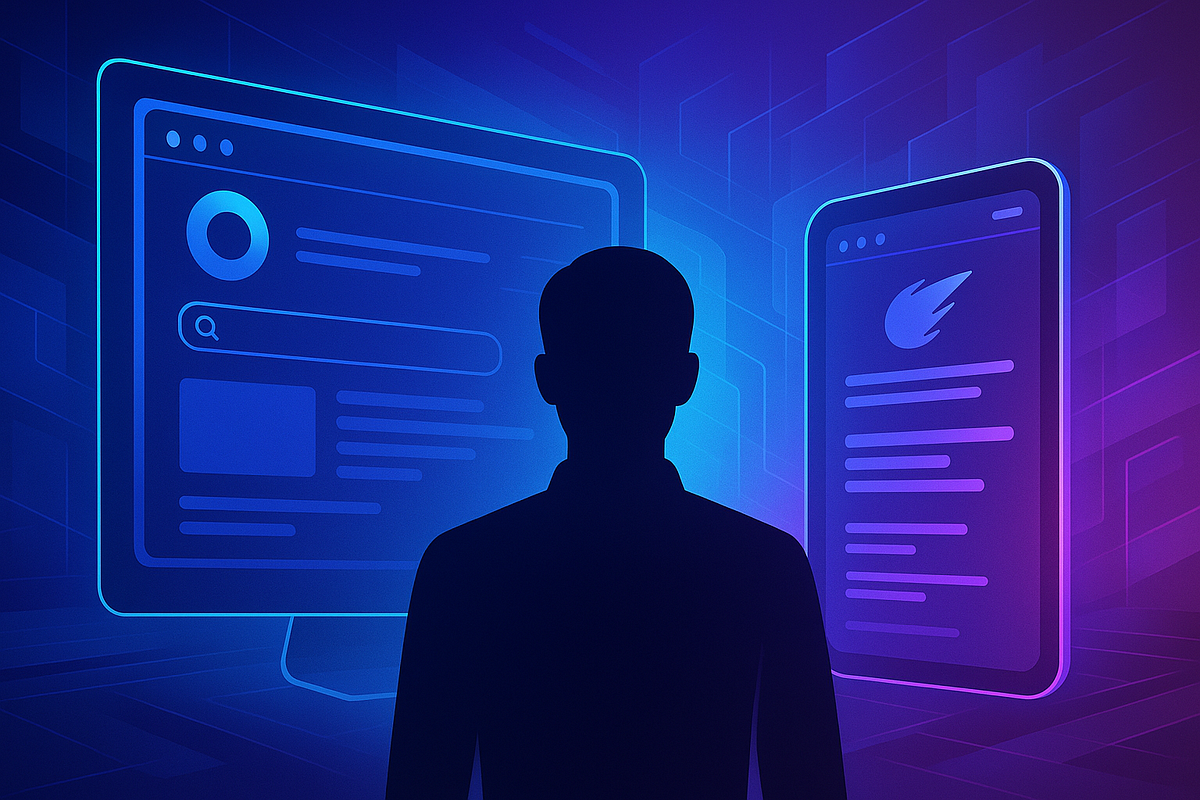Training cutting edge AI? Unlock the data advantage today.
If you’re building or fine-tuning generative AI models, this guide is your shortcut to smarter AI model training. Learn how Shutterstock’s multimodal datasets—grounded in measurable user behavior—can help you reduce legal risk, boost creative diversity, and improve model reliability.
Inside, you’ll uncover why scraped data and aesthetic proxies often fall short—and how to use clustering methods and semantic evaluation to refine your dataset and your outputs. Designed for AI leaders, product teams, and ML engineers, this guide walks through how to identify refinement-worthy data, align with generative preferences, and validate progress with confidence.
Whether you're optimizing alignment, output quality, or time-to-value, this playbook gives you a data advantage. Download the guide and train your models with data built for performance.
Atlassian's acquisition of The Browser Company for $610 million represents the most significant enterprise bet on AI-native browsing to date. By transforming Dia from a consumer tool into a work-focused AI browser, Atlassian is positioning itself to capture the massive productivity gains available when AI becomes integrated directly into the primary work environment—the browser—where 94% of knowledge workers spend half their time.
The reality is that the traditional browsers were never built for work. Despite Chrome commanding 68.35% of the global market, it remains fundamentally designed for casual browsing rather than the complex workflows that define modern knowledge work. Atlassian's strategic acquisition of The Browser Company marks a pivotal moment where enterprise software leaders recognize that the browser has become the new operating system for business operations.
Hi, I'm Dr. Hernani Costa, founder of First AI Movers, where I help executives navigate AI transformation through my newsletter, which reaches over 4,000 professionals. Through my experience, and recently hooked to Dia and Perplexity's Comet, I've witnessed firsthand how AI browsers are transforming productivity workflows. My previous analysis comparing Dia vs Comet revealed fundamental differences in approach that now make perfect sense given Atlassian's enterprise focus.
This acquisition isn't just about buying a browser company—it's about recognizing that when 75% of knowledge workers already use AI tools at work, the browser becomes the natural platform for deploying AI capabilities at enterprise scale. Dia's unique position as an AI-native browser with contextual awareness across tabs, combined with Atlassian's enterprise expertise and a distribution network of over 300,000 customers, creates an unprecedented opportunity to reimagine work itself.
I have 5 invites for our community available!
Simply reply to this email. I'll share the invite with the respondents.

Why Traditional Browsers Failed Knowledge Workers
Current browsers treat every tab identically—whether you're watching YouTube or managing a critical project in Jira. This fundamental design flaw becomes glaring when you consider that knowledge workers juggle multiple SaaS applications simultaneously, often losing context as they switch between tools.
The Browser Reality for Enterprise Workers:
Mike Cannon-Brookes, Atlassian's CEO, captured this perfectly: Today's browsers weren't built for work, they were built for browsing. Whatever it is that you're actually doing in your browser is not particularly well served by a browser that was built in the name to browse. It's not built to work, it's not built to act, it's not built to do.
The statistics support this frustration. While ap. 85% of enterprise workflows occur within web browsers, and less than 10% of organizations have adopted a secure browser. Meanwhile, 65% of knowledge workers face browser-related security risks, creating a productivity paradox where the primary work tool lacks enterprise-grade security and intelligence.
What Makes Dia Different: AI-Native Architecture
Unlike Chrome or Edge with AI features bolted on, Dia was conceived as an AI-first browser. This architectural difference creates capabilities that traditional browsers simply cannot match:
Contextual Intelligence Across Tabs
Dia understands what you're working on across all open tabs. If you have three spreadsheets open in different tabs, Dia can move data between them. If you're reading Gmail while checking your calendar, Dia can automatically surface scheduling conflicts and suggest meeting times. This isn't automation—it's genuine intelligence applied to workflow optimization.
Custom Skills for Workflow Automation
The Skills system represents Dia's most innovative feature. Users can create custom AI workflows triggered by simple commands. For example, a /competitor-intel skill can automatically search news articles, press releases, and industry publications for specific companies, then generate comparative analysis reports. This transforms repetitive research tasks from hours to minutes.

First AI Movers
Privacy-First Enterprise Approach
Unlike consumer AI tools that send data to external servers, Dia processes much of its AI functionality locally when possible. The browser automatically deletes browsing history after 30 days and provides granular controls over data sharing—critical features for enterprise adoption.
My Take: The Strategic Brilliance of Atlassian's Move
Having tested both Dia and its primary competitor, Perplexity's Comet, I can see why Atlassian chose this moment to act. Josh Miller, The Browser Company's CEO, was remarkably candid about the urgency: he thinks the winner of the AI browser space is going to be crowned in the next 12 to 24 months.

Why This Timing Made Sense:
The AI browser wars are intensifying rapidly. OpenAI is reportedly developing its own browser, Google is enhancing Chrome with deeper AI integration, and Microsoft continues expanding Edge's Copilot capabilities. For The Browser Company to compete against these giants required distribution, enterprise sales capabilities, and financial resources that they couldn't build quickly enough.
Atlassian provides exactly what Dia needed: access to over 300,000 customers, including 80% of the Fortune 500 companies, an enterprise-grade security and compliance infrastructure, and a sales organization capable of selling complex software solutions to large enterprises.
The Enterprise AI Browser Market Opportunity
The enterprise browser market represents a massive untapped opportunity. According to Gartner, 25% of organizations will adopt secure enterprise browsers by 2028, while current adoption remains below 10%. This gap creates a window for AI-native solutions like Dia to establish market leadership before traditional browser vendors can respond effectively.
Current Market Dynamics:
Browser market concentration remains extreme, with Chrome (68.35%), Safari (17.09%), and Edge (4.92%) controlling 90.2% of global usage. However, this dominance reflects consumer preferences rather than enterprise requirements. Enterprise buyers increasingly demand browsers that integrate security, compliance, and productivity features rather than just speed and compatibility.
The Knowledge Worker Challenge:
With 75% of knowledge workers already using AI tools, organizations face a productivity disconnect. Workers download ChatGPT, Claude, and other AI assistants separately, then manually copy data between their browser and AI tools. This creates security risks, workflow inefficiencies, and compliance challenges.
Dia eliminates this friction by embedding AI capabilities directly into the browsing experience, with full context of the user's work environment and enterprise security controls.
Bringing It All Together: The Future of Work is AI-Native
Atlassian's acquisition represents more than a product purchase—it's a bet on fundamentally changing how knowledge work happens. By focusing Dia exclusively on workplace productivity (abandoning consumer features like shopping and restaurant reservations), Atlassian is creating the first truly work-native browser.
The Integration Advantage:
Dia's AI capabilities will integrate seamlessly with Atlassian's existing product suite: Jira for project management, Confluence for documentation, Trello for task organization, and Loom for communication. Imagine an AI browser that understands your current Jira tickets, can automatically generate Confluence documentation from meeting notes, and proactively suggests Loom recordings when email threads become complex.
This level of integration creates defensive moats that individual browser vendors cannot replicate. While Google could enhance Chrome with AI features, they cannot provide the deep workplace context that comes from owning the primary productivity applications.
Enterprise Adoption Accelerators:
The acquisition addresses three critical barriers to enterprise AI browser adoption:
Security and Compliance: Atlassian's existing enterprise security infrastructure and compliance certifications transfer to Dia
Change Management: IT departments trust Atlassian to deploy software that enhances rather than disrupts existing workflows
Support and Training: Atlassian's customer success organization can guide enterprises through AI browser adoption
My Final Thoughts: The Broader Implications for AI and Work
This acquisition demonstrates how enterprise software firms approach AI integration. Instead of simply adding AI features to existing products, Atlassian is building an AI-native platform that acts as the foundation for all knowledge work.
The implications go beyond browsers. If successful, Dia could become the main interface for AI-enhanced work, lowering the need for separate AI tools and fostering a more integrated, secure, and efficient work environment. For competitors like Microsoft and Google, this poses an existential threat to their browser strategies.
Looking Ahead: The success of this acquisition will likely determine whether AI browsers become a distinct enterprise category or remain niche tools for power users. Given Atlassian's track record of scaling complex software to enterprise markets and the urgent need for better AI integration in workplace tools, Dia has the potential to become the defining productivity platform of the new AI era.
Want to stay ahead of AI trends that matter to your business? Join 4,000+ executives reading First AI Movers Daily Briefing. Every day, I break down the AI developments that will actually impact your industry—no fluff, just actionable insights. Subscribe to First AI Movers Daily Briefing.
Further Reading
For additional options and context on Perplexity, explore all of my Perplexity-related analyses here: All Perplexity articles on First AI Movers. And, for an in-depth analysis of Comet, check out my dedicated field reports:






